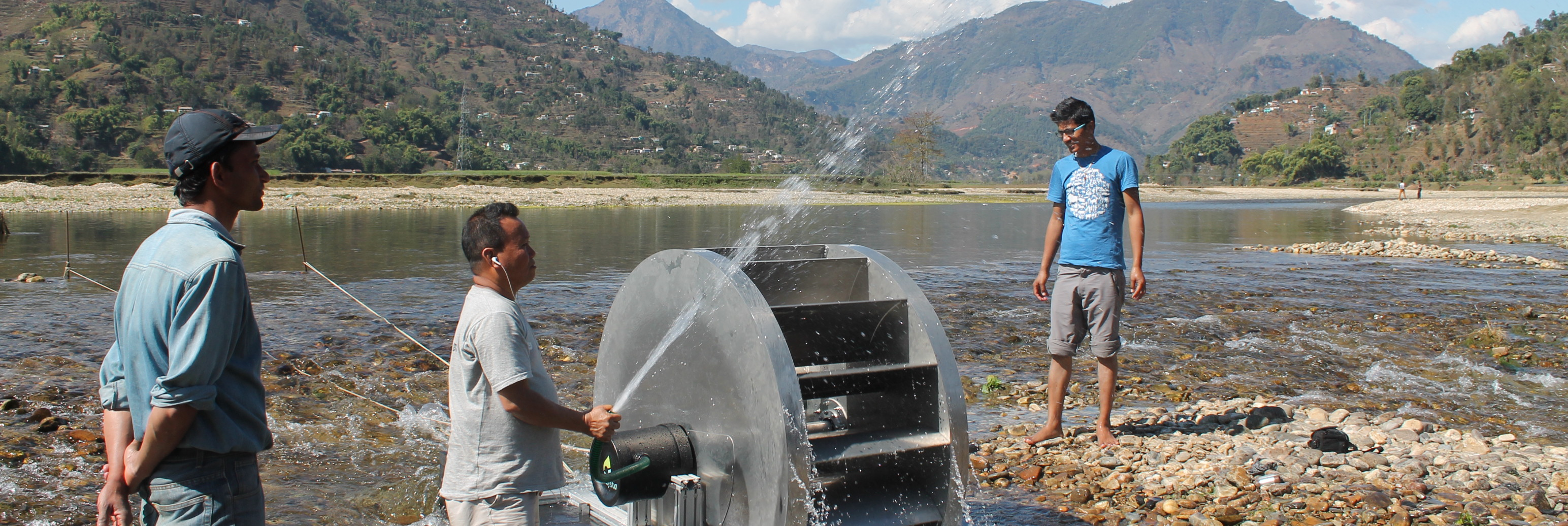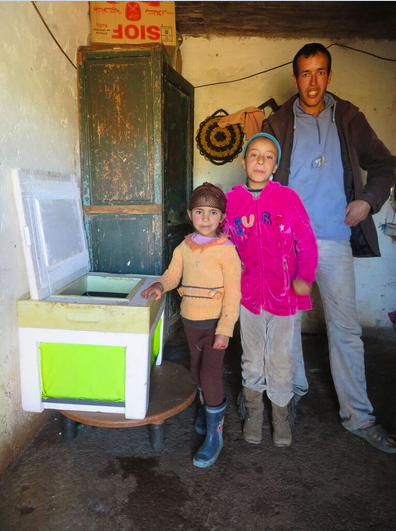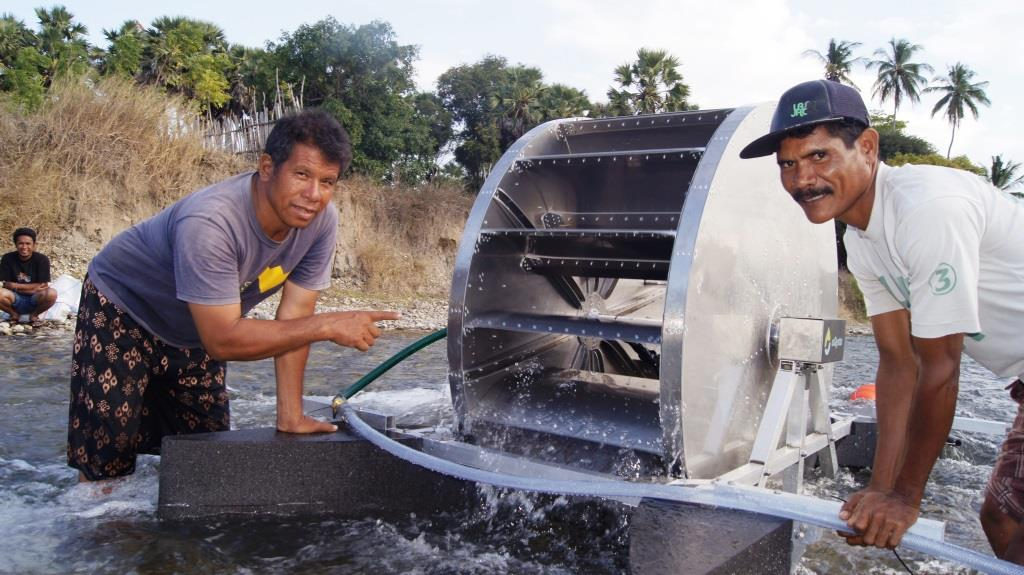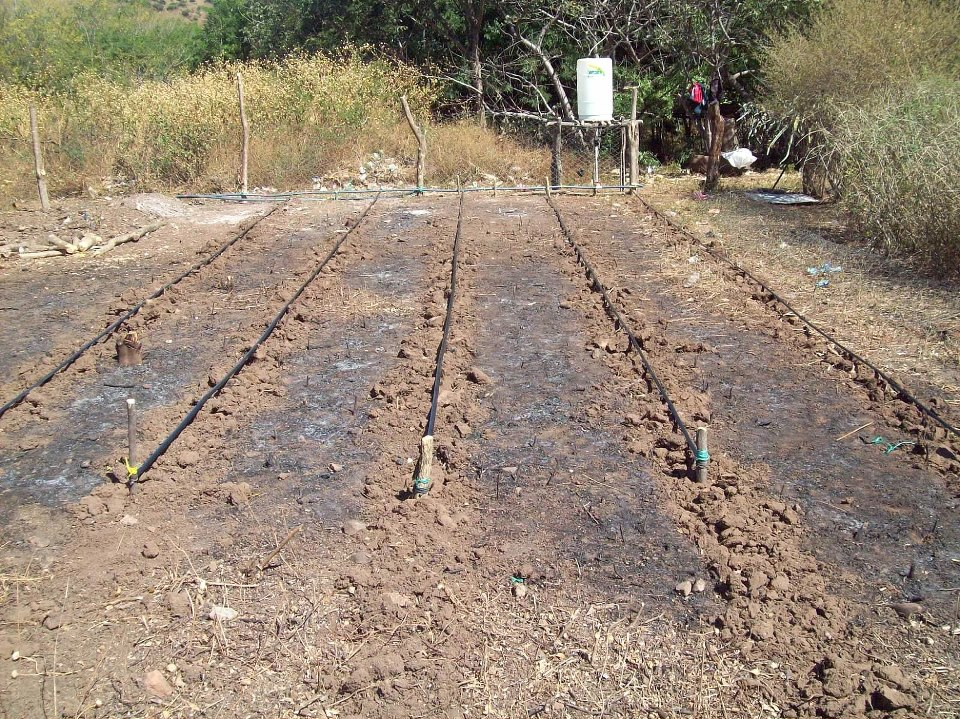Low-tech Solutions Fight Hunger

Low-tech Solutions Fight Hunger
Hamid Oubir lives with his family in a small village in northern Morocco. To sell his produce in the market, he has to make his way to the nearest town early in the morning several times a week. If Hamid Oubir wants to avoid the fruits and vegetables from getting spoilt he needs to make three-hour treks by foot to reach the market. Added to this is the financial loss that he incurs every time he leaves his field to go to the market.
Simple technologies promote rural development
Many families in rural areas face the same challenges as Hamid Oubir. In developing regions, a quarter of the cereals and more than half of the fruit and vegetable crops are damaged due to poor conditions for storage and processing. This is why comprehensive rural development and sustainable agricultural production play a key role in the fight against hunger. However, the lack of access to water and electricity, as well as the absence of facilities to store their produce, makes it hard for farmers like Hamid Oubir to reduce decayed produce and to provide adequately for themselves and their families.

Hamid Oubir with his family and the Fenik Yuma 60L.
Simple technological innovations can play a key role here. In particular, social entrepreneurs – start-ups whose objectives are geared towards the positive influence of their business activities on society, likewise university spin-offs are developing interesting solutions around the world. For example, small farmers could store their produce over the long term using simple refrigeration or silo solutions and sell more profitably and continue feeding their families for longer durations even after the harvest period. This is was the inspiration behind Spencer Taylor’s Fenik Yuma 60L – an electricity free mobile refrigeration technology to keep food fresher, longer and it costs less than 30 USD. Hamid Oubir tried out these simple designed coolers. After using the Fenik for a short span of time he reported that he was able to save 4-5% extra each month.
Not only did Fenik help keep his produce fresh for longer but also the time he was able to save had a positive impact on his life and productivity. This example shows the impact that simple technologies can have on everyday life in the developing regions and how hunger can be fought over the long term in small but sustainable steps. Thus helping people to provide for themselves and to make the most of what they produce.
Politics, business and citizens need to develop together
For the success and wider reach of such solutions political support, economic participation, individual responsibility and educational opportunities are required at the same time. Measures such as the distribution of land ownership and the development of decentralized processes in agricultural production are a task for the political leaders. However, individual steps to secure livelihoods in the agricultural value chain, including the establishment of sustainable trade relations, can often be achieved by people locally with little outside support. In addition, simple but effective technologies play an important role. They not only ease arduous manual work, improve the yield but often create a foundation for paid work and boost an individual’s economic prospects.
Networked know-how for greater efficiency
The Siemens Stiftung’s empowering people. Network pursues the aim of finding social entrepreneurs with promising, sustainable and low-tech solutions – like the Fenik Yuma 60L – to connect them with peers, to promote them sustainably and make them visible to potential partners. An essential aspect involves making the best possible use of local resources and supporting local small businesses in developing a promising corporate strategy. The transfer of knowledge and best practices, the actual application of technological innovations under local conditions, as well as the creation of worthwhile jobs and their maintenance is what motivates and drives the network members. All of this will ideally result in model projects that are locally adaptable offering people from diverse regions the chance to improve their living conditions.
The network database currently comprises some 100 tested solutions in nine different categories: from renewable energies to information technologies and education to recycling, water saving and health. Another focus is on agriculture, with many of the inventors and developers confronting the hunger problem by using their solutions to help improve the food situation in developing regions.

The Barsha Pump by aQysta works on the principle of spiral pumping, using the kinetic energy of the waterwheel to transport water to higher elevations without the need for active mechanical parts to create pumping action.

EOS International has produced a drip irrigation system that costs 20 USD and efficiently distributes water to a 50 m2 farm plot using local materials found in rural Nicaragua.
Simple technology to promote sustainable agriculture
The agricultural solutions within the network extend along the entire agricultural process chain – starting with the use of irrigation technology for the fields, which can double the crop if not increase it five-folds. Here, for example, the Barsha Pump makes a valuable contribution. Using the 1.5 m high waterwheel, it can pump up to 40,000 liters of water per day to higher elevations entirely without any additional mechanisms. The drip irrigation system from EOS International is a low-cost alternative to expensive trickle irrigation. This involves replacing commercial components of the irrigation system with affordable everyday items. This solution is already being used successfully worldwide.
Half the world’s arable land is farmed by small farmers. Their needs, challenges and working conditions are therefore a key starting point for long-term positive changes. This is precisely where social enterprises using simple technologies make a difference every day, enabling farmers to work more efficiently, act more independently and improve the living conditions of their families and communities.
You want to know more about the solutions and the innovators behind them? Check out our website and get in touch.